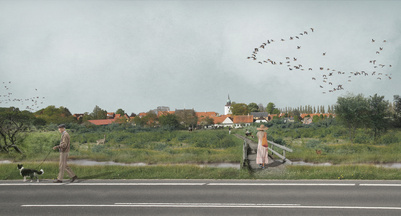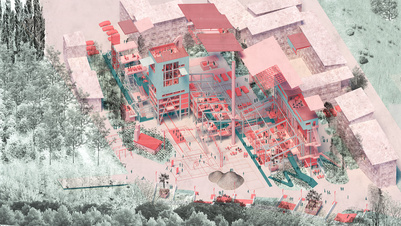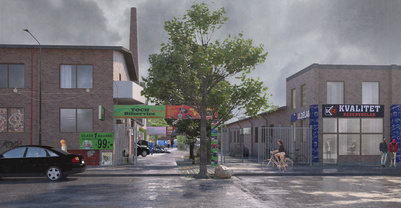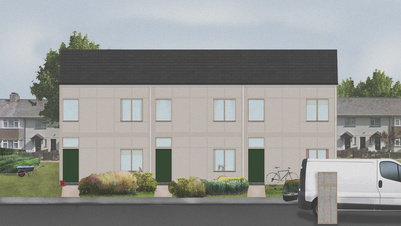The 4th Place
Name
Christian Nygaard Schmidt
Education degree
Master
Study programme
Urbanism & Societal Change
Institute
Architecture, Urbanism and Landscape
Year
2021
As we have been forced to re-evaluate the future of work, the fundamental notion of how, where, and when we work sets new requirements to the physical office and its relationship to the surrounding city. This project explores how a hybrid work model could revitalize the identity of Kalvebod Brygge, to reflect a more inclusive and diverse district that signifies the nature of the knowledge economy.
The Royal Danish Academy supports the Sustainable Development Goals
Since 2017 the Royal Danish Academy has worked with the Sustainable Development Goals. This is reflected in our research, our teaching and in our students’ projects. This project relates to the following UN goal(-s):
Decent work and economic growth (8)
Industry, innovation and infrastructure (9)
Sustainable cities and communities (11)















































